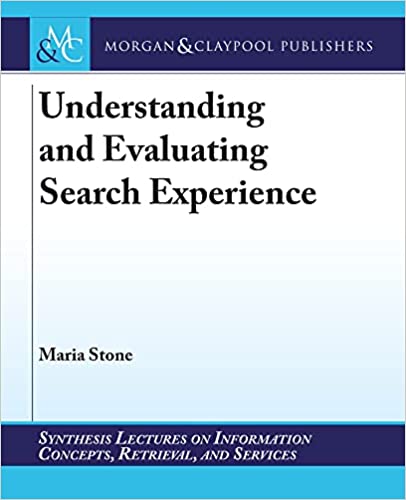
English | 2022 | ISBN: 1636393349, 978-1636393322 | 105 pages | True PDF | 5.98 MB
This book is intended for anyone interested in learning more about how search works and how it is evaluated. We all use search--it's a familiar utility. Yet, few of us stop and think about how search works, what makes search results good, and who, if anyone, decides what good looks like. Search has a long and glorious history, yet it continues to evolve, and with it, the measurement and our understanding of the kinds of experiences search can deliver continues to evolve, as well. We will discuss the basics of how search engines work, how humans use search engines, and how measurement works. Equipped with these general topics, we will then dive into the established ways of measuring search user experience, and their pros and cons. We will talk about collecting labels from human judges, analyzing usage logs, surveying end users, and even touch upon automated evaluation methods. After introducing different ways of collecting metrics, we will cover experimentation as it applies to search evaluation. The book will cover evaluating different aspects of search--from search user interface (UI), to results presentation, to the quality of search algorithms. In covering these topics, we will touch upon many issues in evaluation that became sources of controversy--from user privacy, to ethical considerations, to transparency, to potential for bias. We will conclude by contrasting measuring with understanding, and pondering the future of search evaluation.
Links are Interchangeable - No Password - Single Extraction



